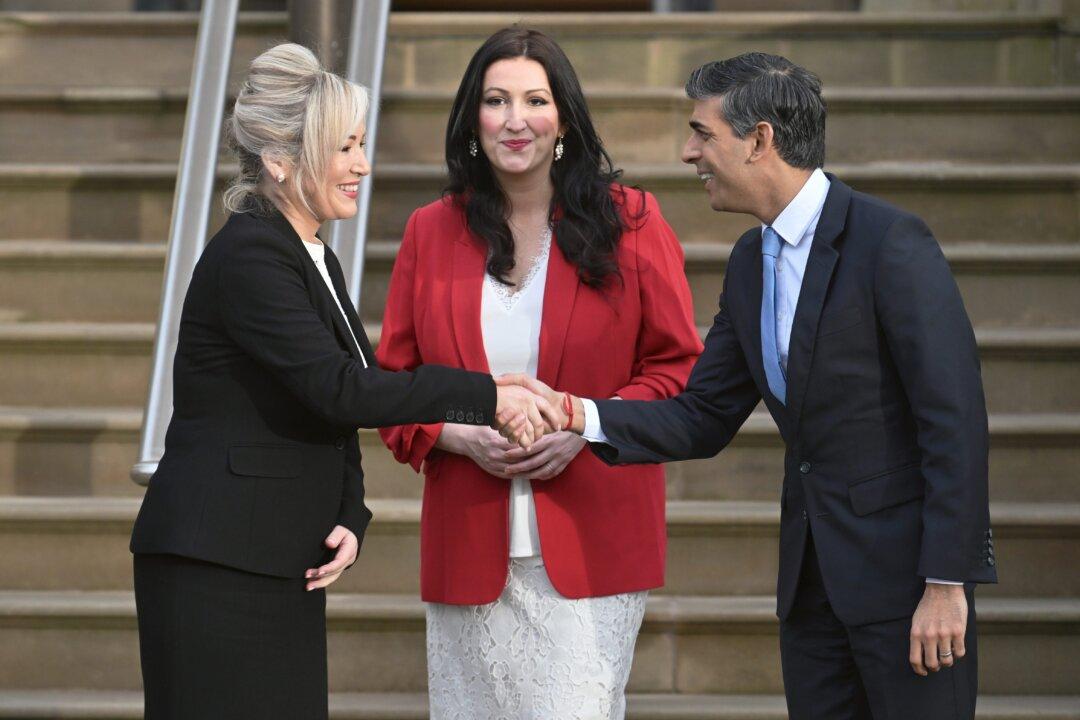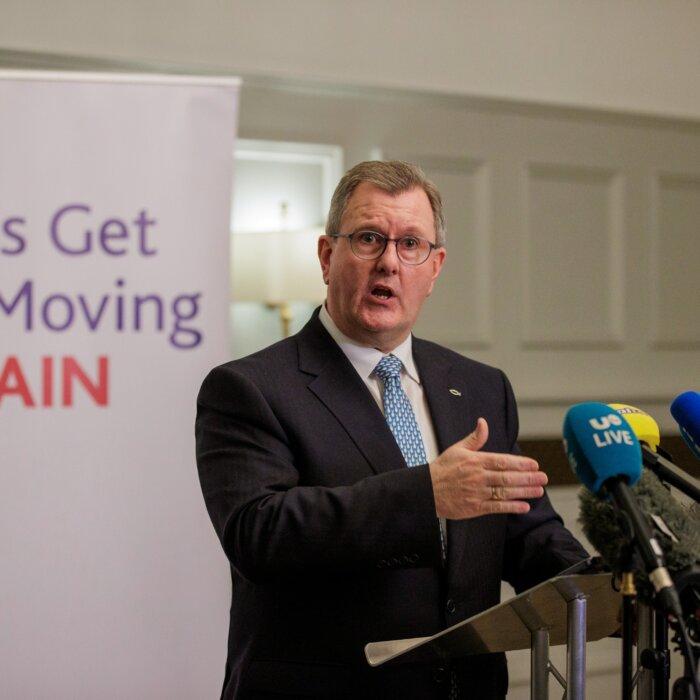The restoration of Stormont’s institutions, following an agreement aimed at addressing unionist concerns post-Brexit, has opened up a route for discussions across Northern Ireland over its future association with both the EU and the rest of the UK. Pro-Brexit hardliners, especially those within the DUP, have warned that the Windsor Framework sets out a barrier to Northern Ireland being treated the same as the rest of the UK.
Mr. Sunak told media, “The most important thing is that the people of Northern Ireland are in charge of their own destiny,” discussing the empowerment brought back by the so-called Stormont Brake and the now operational Executive. The primary function of the Stormont Brake is to ensure that Northern Ireland has a say in the application of EU laws that affect it, acknowledging the region’s unique position of being part of the UK but also having a land border with the EU.
Mr. Sunak also reiterated his belief in the significance of the Windsor Framework and its role in safeguarding Northern Ireland’s place within the UK, to ensure the smooth flow of trade post-Brexit.
“That’s the deal we struck,” Mr. Sunak said, expressing confidence in the immediate and lasting benefits for Northern Ireland, during a visit where he set out an agenda focused on pressing day-to-day issues like health care.
First Minister Demands More Funding
During the first day of proceedings, the new first minister, Sinn Fein’s Michelle O’Neill, demanded more funds from Westminster to bolster Northern Ireland’s public services. Serving as the first ever nationalist first minister in Northern Ireland, alongside her deputy from the DUP, Emma Little-Pengelly, Ms. O’Neill emphasised a collective stance against the proposed £3.3 billion Treasury package, saying, “We put on a united front and delivered a loud and clear message to Mr. Sunak that what was offered is not sufficient.”This sentiment was shared by her counterpart, Ms. Little-Pengelly, who stressed the importance of addressing the pay demands of striking public sector workers.
“Securing enough money to meet these demands is a key ask of the government,” she said, illustrating the newfound shared priorities of Stormont’s leadership.
The collaboration between Sinn Fein and the DUP was highlighted during discussions with Mr. Sunak and the Irish taoiseach, Mr. Varadkar.
ROI Offers Financial Support
Mr. Varadkar also expressed his government’s willingness to provide additional support, emphasising the importance of cooperation between north and south.“The Irish government is ready to help Northern Ireland with further financial support,” Mr. Varadkar confirmed, signalling potential for increased Irish investment in the region through the Shared Island Initiative.
In the face of recent tensions between the UK and Ireland, particularly regarding legal challenges against the UK’s legislation on the Northern Ireland Troubles, both Mr. Sunak and Mr. Varadkar sought to downplay any discord.
Mr. Sunak stressed the enduring partnership between the two nations.
“Ireland is always going to be a close and valued partner and friend of the United Kingdom,” he stated, reinforcing the commitment to collaboration despite disagreements.
Mr. Sunak added: “I think many, if not most people, thought we wouldn’t actually see this moment come so I think it is a cause for optimism. That is the spirit I’ve picked up in all my conversations and meetings yesterday and today.
“I think this is an important and significant, if not historic day for the people of Northern Ireland.”







